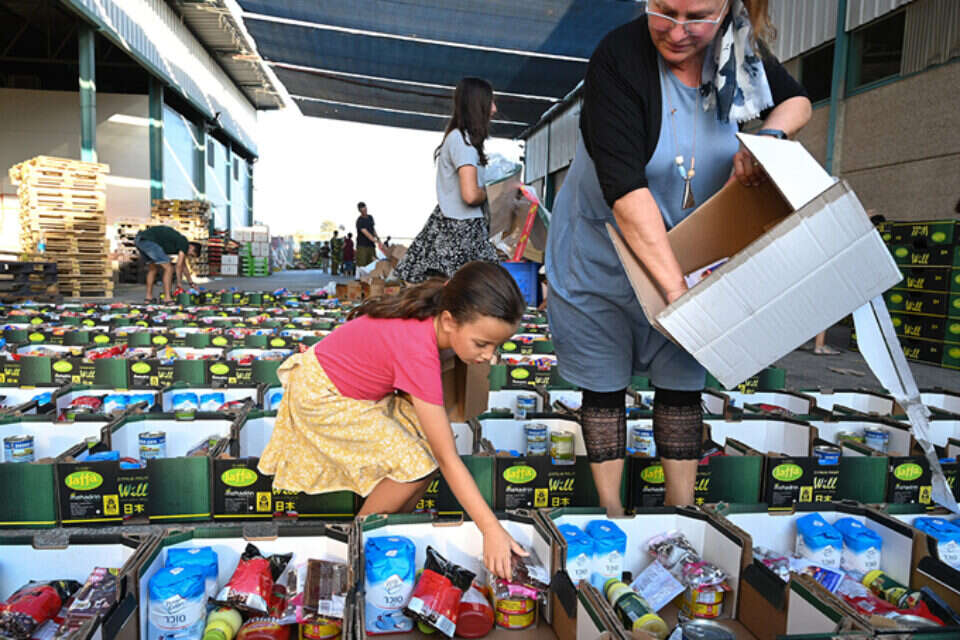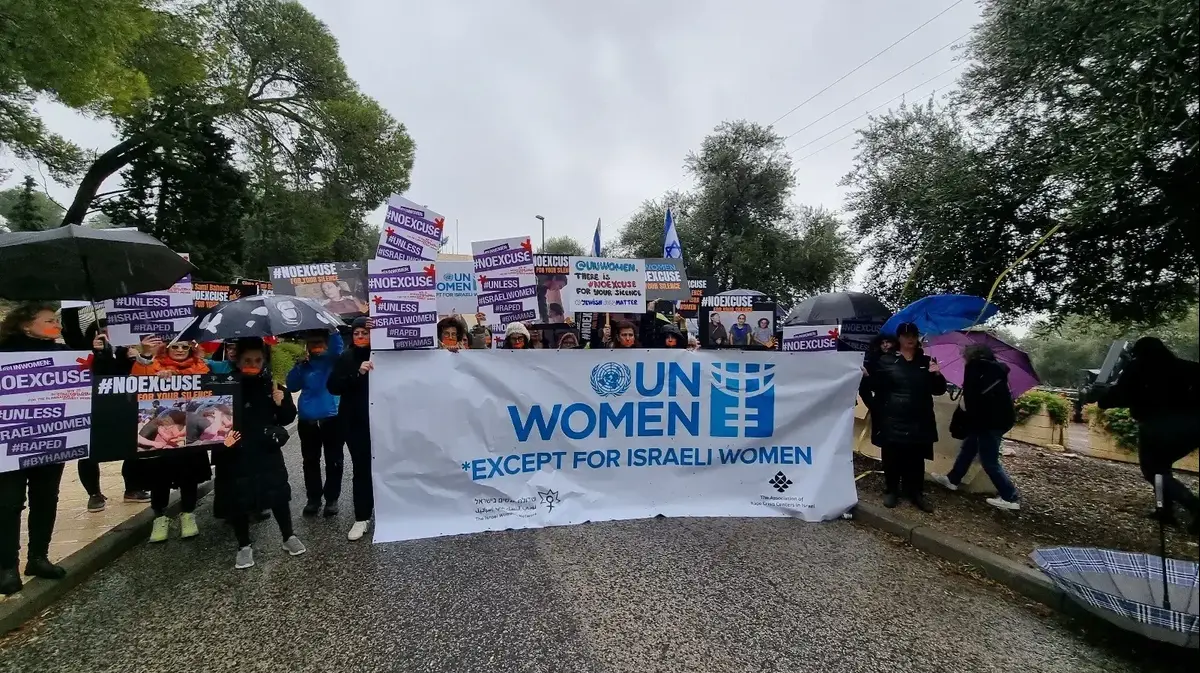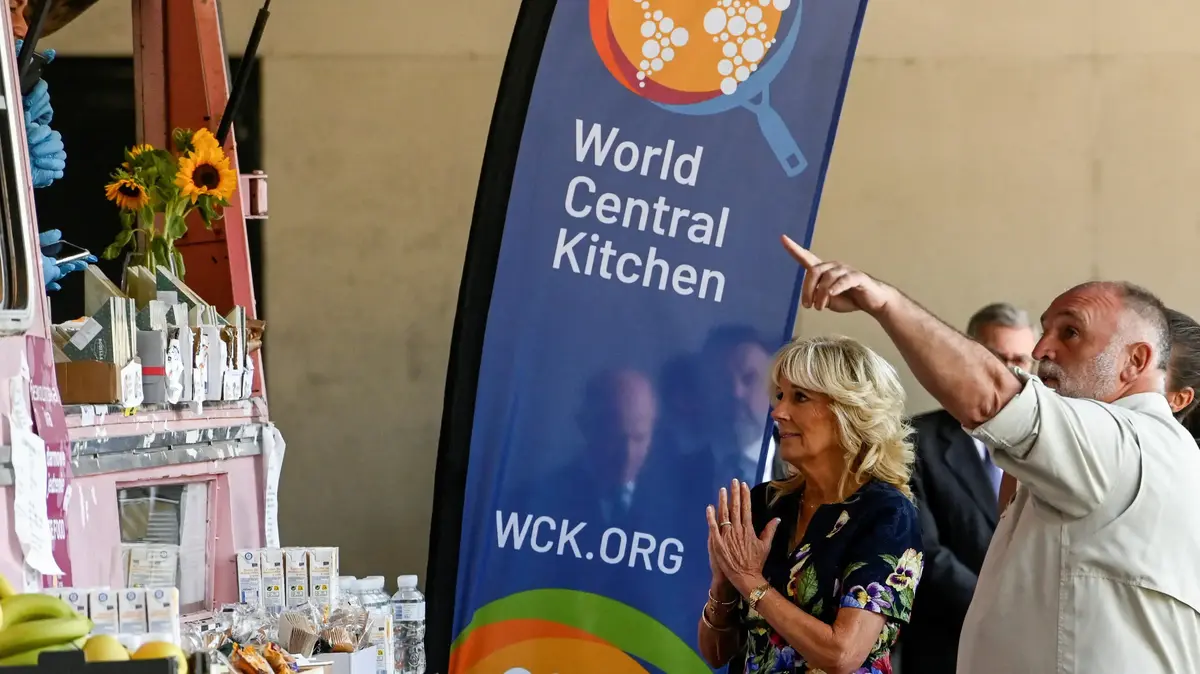The wave of rising prices in recent months in the economy, which has boosted the prices of electricity, fuel, food and many other basic consumer goods, has also led to an increase in inquiries from Israelis to aid organizations for the needy.
In the organization "Pethon Lev", the center for assistance for tens of thousands of families through the distribution of food baskets, clothing, etc., reported that in the first half of 2022 there was a 20% increase in applications for assistance.
It is also estimated that an even greater increase in the number of requests for help is expected ahead of the holidays.
Most people who seek help do so for the first time.
According to the poverty report, they are not considered poor, as they earn more than NIS 9,700 a month, but the rise in prices and the increase in expenses have affected them dramatically.
The Bells organization, which helps, advises and financially accompanies about 5,000 families a year, has also noticed a significant jump in the number of referrals to them in the last two months, and is convinced that the number of referrals will increase as the holiday season approaches.
A similar trend is also recorded in the "Live with Dignity" organization, whose volunteers distribute about 1,500 hot meals to the elderly and Holocaust survivors every month.
These figures have swelled over the past two years, under the influence of the corona plague, and following the recent rise in prices there has been a further increase in requests for help.
Distribution of food packaging to Holocaust survivors, Photo: Yehonatan Shaul
Odelia, 45, a resident of Kiryat Malachi, separated and a mother of two children, one of them with special needs, describes an increasing difficulty in meeting the financial burden.
"I do not sleep at night, looking for different alternatives to bring money home," she says.
"Electricity, eggs and milk are not supposed to be luxuries, it is impossible to exist without these basic needs. I feel like I am treading a dead end."
"Missing responsible adult"
"The feeling is that there is a lack of a responsible adult," says Eli Cohen, CEO of Pethon Lev.
We feel this well in the rise of aid seekers.
"Raising electricity prices carries with it a horizontal price increase in almost everything. It's unbelievable. I really do not understand why the state does not intervene. We were recently informed that Israel has no debts, that there is a surplus of NIS 60 billion in tax collection. The rise in electricity?
"120 detached Knesset members are conducting more and more election campaigns that cost the economy many billions, and all this while the citizens are collapsing under the burden. This crisis is felt especially in the weaker sections."
Eli Cohen, CEO of Pethon Lev, Photo: Yehoshua Yosef
Cohen explains that this is an ongoing trend, meaning a 20% monthly increase in demand for aid.
At the same time, there has also been a decline in public donations to aid organizations as a result of the belt tightening - many who have donated have decided to reduce the amount or give up donating in an attempt to cut spending.
"Demand has increased significantly, our supply and ability to receive resources has dropped significantly and costs have increased greatly. There is distress," Cohen states.
25% increase in inquiries
As mentioned, the "Live with Dignity" organization, which operates 29 food distribution points throughout the country, is also trying to deal with an increase in inquiries, along with dealing with the consequences of the price increase.
"Unfortunately, as prices rise, whether in basic products, electricity, water, and of course in foods such as meat and vegetables - the operating costs for us also rise and the quantities we provided at a certain cost are automatically small," notes the association's CEO, Erez Karlenstein.
If in the corona period there was a 25% increase in requests for help, then now it is still difficult to estimate the volume of demand in numbers - certainly when the overall estimate is for a large significant jump next month.
"We are currently working harder to raise donations to bridge the gap between operating costs and product prices, but as the cost of living rises, we will have to reduce the amount of rations or alternatively raise more donations," says Karlenstein.
"We call on the people of Israel to mobilize and give, despite the difficulty, so that Holocaust survivors and the elderly do not find themselves hungry on the eve of the holiday."
Buy in installments
Sharon Levin, information manager at the "Bells" organization, reports that in recent months there has been a 15% -10% increase in inquiries to the organization.
"80% of the applicants are employees," says Levin.
"Current expenses for the family are rising - the rise in electricity prices is affecting, people are more at home so there is more spending on food. Fuel has become more expensive. There are expenses on attractions and activities for children.
"We are trying to help plan expenses during this period. We understand that the rise in prices is not a one-off event, but an ongoing event that needs to be prepared for. Interest rates will rise again and this will affect loans. Electricity prices will rise, bread prices will rise, we will have to give up things."
For example, in the case of T., a resident of the south, who admits to us that in recent months she has had to decide whether to buy medicine or food.
Her refrigerator is often empty, she says, and she pays her electricity and water bills on a regular basis.
"There are no more expenses for luxuries," says N., a resident of the center, who never thought she would need help to finish the month.
Her family is above the poverty line, she and her husband earn together about NIS 12,000 a month and carry a NIS 3,000 mortgage.
"Today we think twice before buying things for kids like clothes and toys. My parents help us with the shopping at the supermarket. I reduced the trips because the fuel became more expensive. When I turn on an air conditioner in the kids' room, I turn off the air conditioner in the living room.
"The holidays are approaching and I am worried because there are a lot of expenses during this period. In the meantime we are buying in installments, taking out loans, but it is not a solution. It just puts off the problem."
Were we wrong?
Fixed!
If you found an error in the article, we would love for you to share it with us









